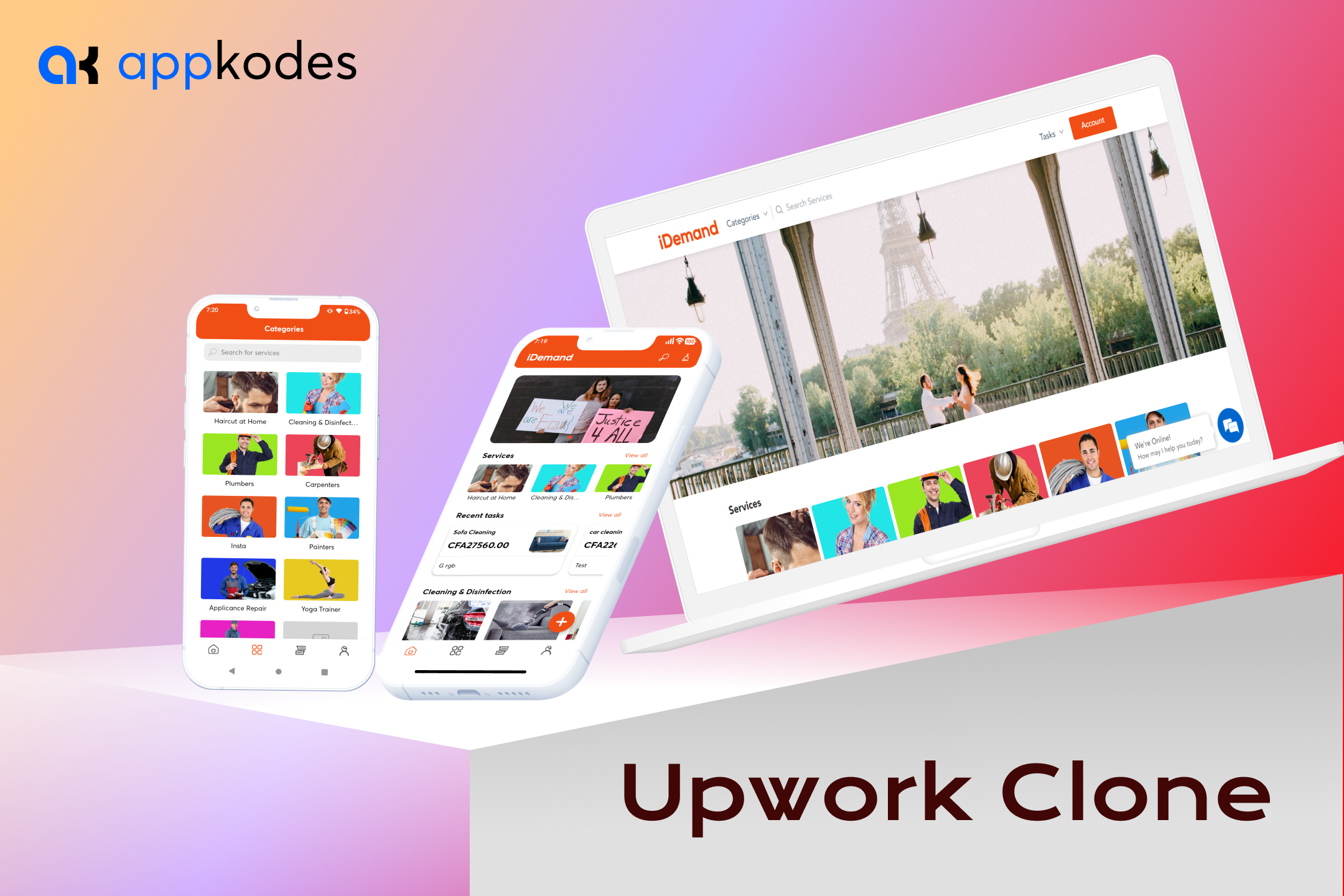In the dynamic world of freelancing, the demand for specialized platforms is on the rise. As businesses and professionals increasingly turn to freelance work, creating a custom Upwork clone offers a unique opportunity to tap into this burgeoning market. By developing an Upwork clone, you can cater to niche markets, streamline freelance operations, and capitalize on the growing trend of remote work. Here’s a guide on how to turn your Upwork Clone concept into a successful platform.
Identifying Your Niche Market
Before diving into development, it’s crucial to identify the specific niche or target audience your Upwork clone will serve. While Upwork caters to a broad range of freelancers and clients, focusing on a particular industry or profession can set your platform apart. For example, you might create a platform tailored to tech freelancers, creative professionals, or even specialized sectors like legal or medical consulting. Understanding your niche will help you design features and functionalities that meet the unique needs of your target audience.
Crafting a Unique Value Proposition
To distinguish your Upwork clone from existing platforms, it’s essential to define a clear value proposition. What will make your platform stand out? This could be anything from enhanced user experience, specific features, or innovative tools that solve common pain points in the freelance industry. Consider integrating features like advanced matching algorithms, specialized skill verification, or unique project management tools. Your value proposition should address gaps in the current market and provide real solutions for freelancers and clients.
Designing User-Friendly Features
A successful freelance platform hinges on its usability. Ensure that your Upwork clone includes intuitive design elements that make it easy for users to navigate and utilize the platform effectively. Key features to consider include:
- Profile Customization: Allow users to create detailed profiles showcasing their skills, experiences, and portfolios.
- Project Management Tools: Implement tools for tracking project progress, communication, and payment management.
- Advanced Search and Matching: Develop algorithms that match freelancers with projects based on their skills and preferences.
- Secure Payment Gateway: Ensure secure and reliable payment options to build trust among users.
User feedback is invaluable during the design phase. Conduct surveys or focus groups with potential users to refine your features and ensure they meet user needs.
Developing a Robust Platform
Building your Upwork clone requires careful planning and execution. Work with a development team experienced in creating scalable and secure platforms. Key considerations during development include:
- Scalability: Ensure your platform can handle increasing numbers of users and transactions as it grows.
- Security: Implement robust security measures to protect user data and financial transactions.
- Mobile Compatibility: With the increasing use of mobile devices, ensure your platform is responsive and accessible on smartphones and tablets.
Regular testing and quality assurance are crucial to identify and address any issues before launch. Consider beta testing with a select group of users to gather feedback and make necessary improvements.
Marketing and Launch Strategy
Once your platform is ready, it’s time to focus on marketing and launch strategies. Develop a comprehensive marketing plan to create awareness and attract users to your platform. Key strategies include:
- Content Marketing: Create valuable content related to freelancing and your niche to drive traffic to your platform. This could include blog posts, case studies, and industry reports.
- Social Media: Utilize social media channels to engage with potential users and promote your platform.
- Partnerships: Establish partnerships with industry influencers, organizations, or communities that can help promote your platform.
A successful launch requires a strategic approach to attract early adopters and generate buzz. Consider offering incentives or exclusive features to early users to build momentum.
Continuous Improvement and Adaptation
Launching your Upwork clone is just the beginning. To ensure long-term success, focus on continuous improvement and adaptation. Regularly update your platform with new features, improvements, and bug fixes based on user feedback and industry trends. Stay informed about emerging trends in freelancing and technology to keep your platform relevant and competitive.
Monitoring key performance indicators (KPIs) such as user engagement, retention rates, and transaction volumes can provide valuable insights into the platform’s performance and areas for improvement. Regularly analyze these metrics to make informed decisions and refine your strategies.
Ongoing Innovation and Market Adaptation
Launching an Upwork clone presents an exciting opportunity to capitalize on the growing freelance economy. By identifying a niche market, crafting a unique value proposition, designing user-friendly features, and executing a strategic marketing plan, you can create a successful platform that meets the needs of modern freelancers and clients. Remember, continuous improvement and adaptation are key to maintaining relevance and achieving long-term success in the competitive freelance marketplace.
On-demand App Development is revolutionizing how businesses and consumers interact by providing instant, personalized solutions tailored to their specific needs. This technology enables the creation of applications that facilitate real-time services and transactions, from booking rides and ordering food to accessing freelance talent and medical consultations. By leveraging on-demand app development, businesses can offer seamless, user-friendly experiences that cater to the growing demand for convenience and immediacy. This approach not only enhances customer satisfaction but also opens up new revenue streams and growth opportunities in a rapidly evolving digital landscape.



Pingback:Grow on TikTok with Better Bio Links | Optimize for Success